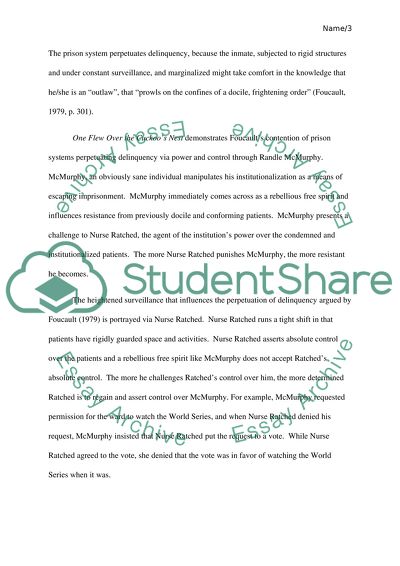Cite this document
(“In What Way does One Flew Over the Cuckoo's Nest Demonstrate Assignment”, n.d.)
In What Way does One Flew Over the Cuckoo's Nest Demonstrate Assignment. Retrieved from https://studentshare.org/sociology/1402218-paper-about-michel-foucault
In What Way does One Flew Over the Cuckoo's Nest Demonstrate Assignment. Retrieved from https://studentshare.org/sociology/1402218-paper-about-michel-foucault
(In What Way Does One Flew Over the Cuckoo'S Nest Demonstrate Assignment)
In What Way Does One Flew Over the Cuckoo'S Nest Demonstrate Assignment. https://studentshare.org/sociology/1402218-paper-about-michel-foucault.
In What Way Does One Flew Over the Cuckoo'S Nest Demonstrate Assignment. https://studentshare.org/sociology/1402218-paper-about-michel-foucault.
“In What Way Does One Flew Over the Cuckoo'S Nest Demonstrate Assignment”, n.d. https://studentshare.org/sociology/1402218-paper-about-michel-foucault.


